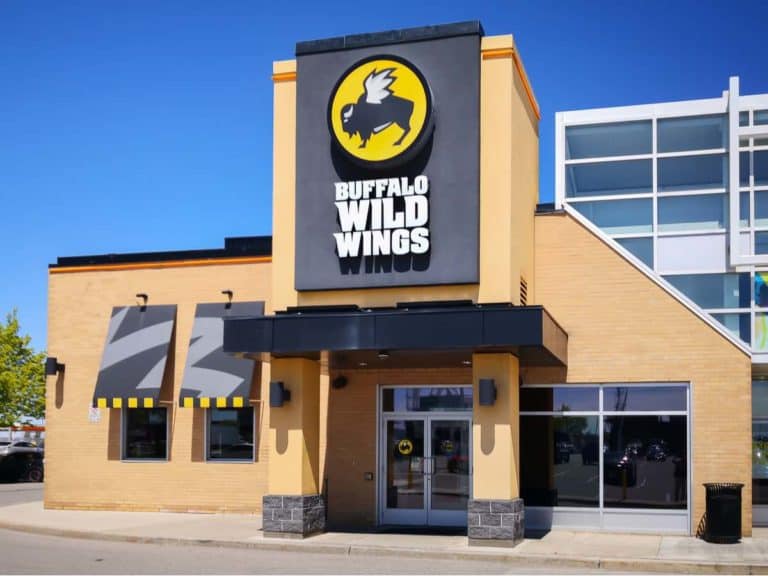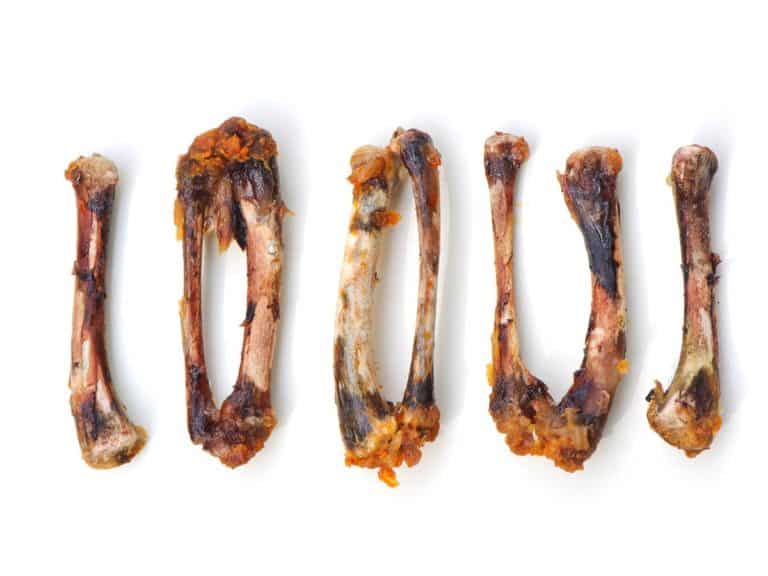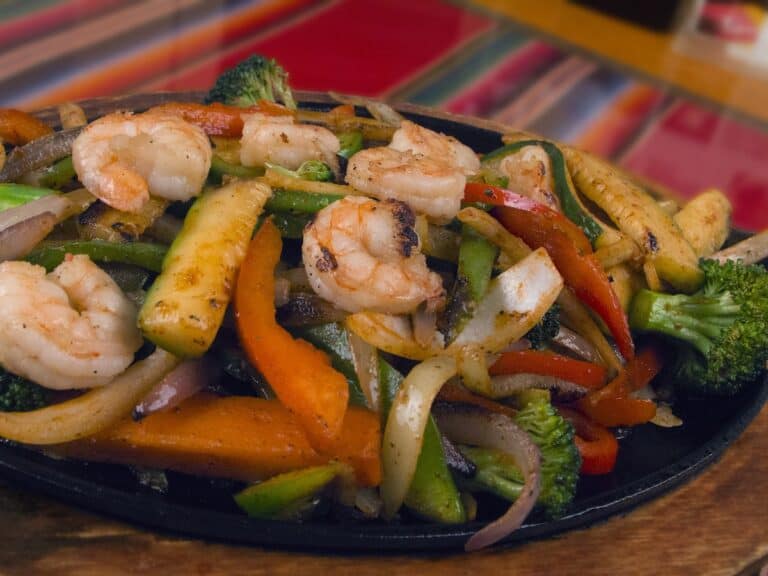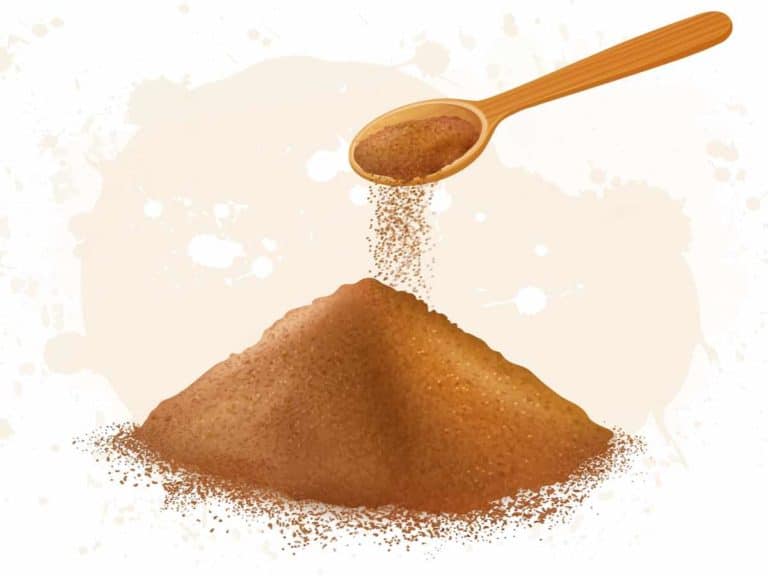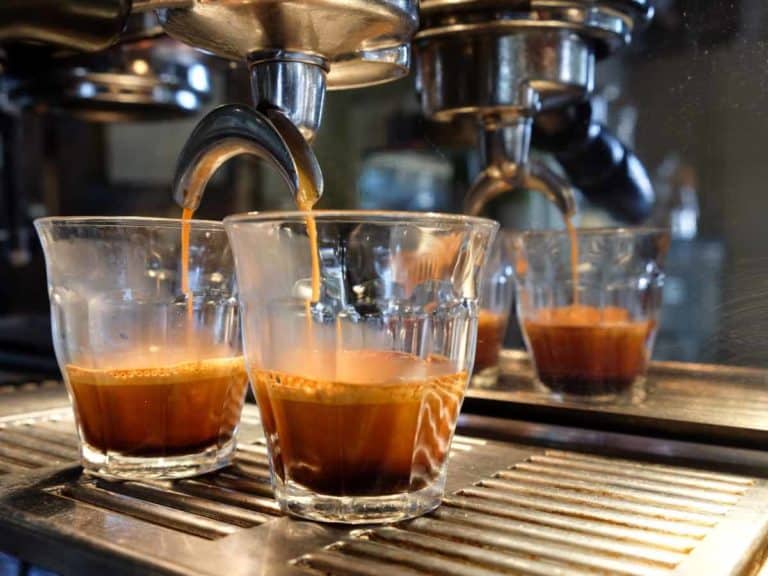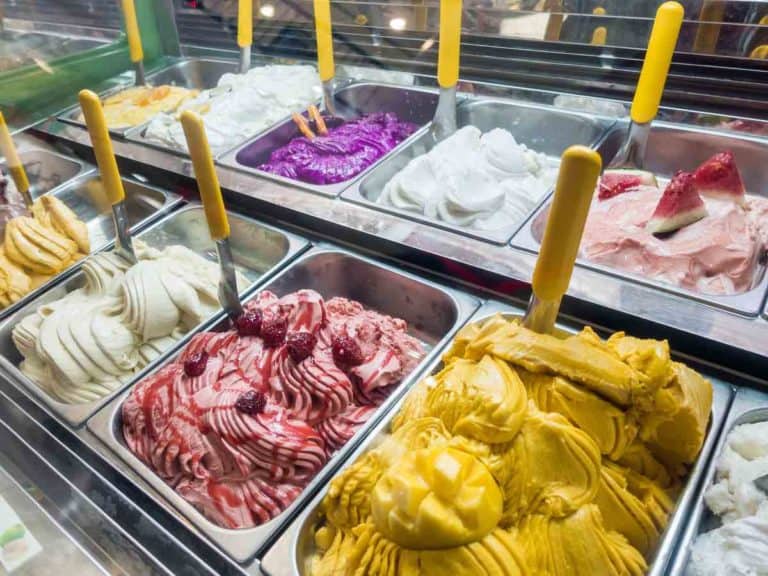Is Alcohol in Vanilla Extract Harmful?
To be considered vanilla extract, it needs to have a certain amount of ethyl alcohol. Normally, vanilla extract is a very common and popular baking ingredient. It adds a delicious flavor to an assortment of baked products. It also enhances the flavors of other ingredients.
However, I found that some people drink it. Not a good idea.
Alcohol in vanilla extract is not harmful if vanilla extract, which contains at least 35% ethyl alcohol, is used for baking. It’s because its alcohol content evaporates at 173°F. However, drinking vanilla extract is a different story. One can get drunk from drinking four to five ounces of it.
Read on if you love making all sorts of baked masterpieces but are worried about your sobriety or your kids ending up getting alcohol.
A Quick Look at Vanilla Extract
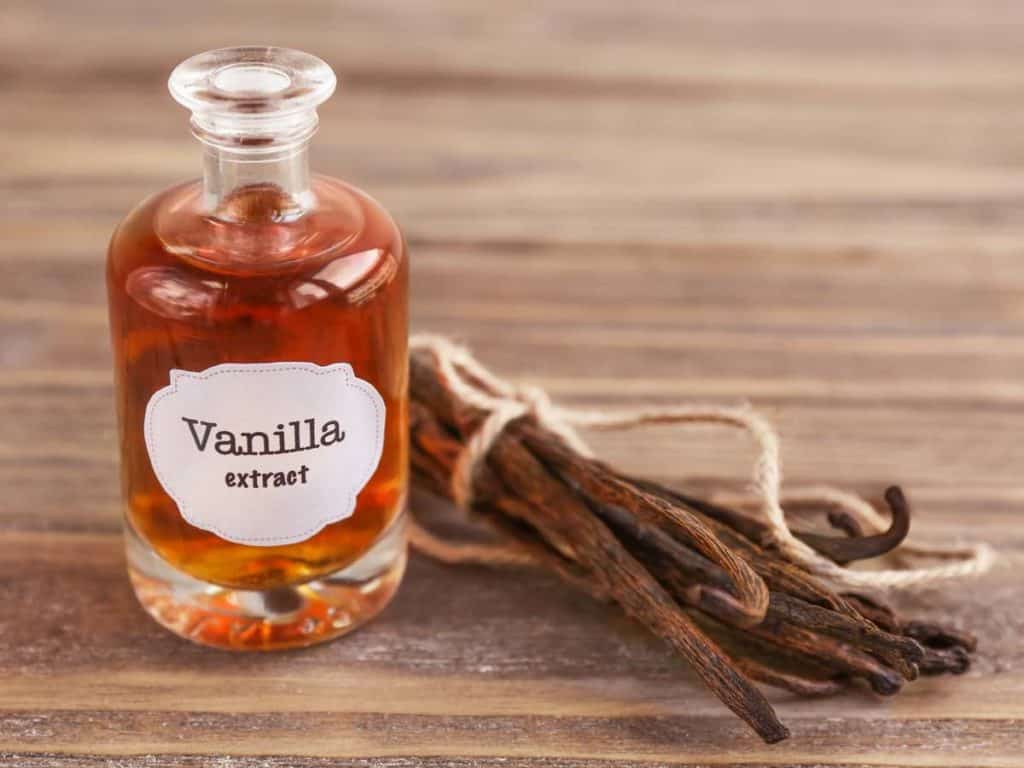
Before anything else, let us get to know vanilla extract more. Despite being a well-loved baking ingredient, not too many people are familiar with it. As a matter of fact, many are surprised to learn that it has alcohol.
Vanilla extract is made from vanilla beans. It is extracted from vanilla beans using ethyl alcohol and water. The main flavor compound present in it is vanillin.
However, the vanilla extract contains other flavor compounds that amount to over 200. It’s because of this why vanilla extract can give any baked product a complex and deep flavor.
Madagascar, Mexican, Indonesian, Tahitian and Ugandan — these are the leading vanilla bean types used for making vanilla extract. Having high concentrations of vanillin is the reason why they are better than the rest.
It’s also possible to get vanilla extract from other vanilla bean types. However, the extract may not be that flavorful.
Most baking recipes require the use of vanilla extract. This is true for making cakes, cupcakes, brownies and cookies. Some desserts also call for the use of vanilla extract. Some examples are ice creams, custards and puddings. But aside from vanilla extract, you may also come across vanilla in other forms.
Let us take a quick look at the different vanilla products that you may use for baking…
- Vanilla beans. Many serious bakers prefer to use whole vanilla beans. It doesn’t come as a surprise since the flavor compounds of vanilla beans remain intact and not washed out. However, using whole vanilla beans can take up more time in the kitchen than using vanilla extract.
- Vanilla essence. Don’t let the name fool you. It’s true that it has “vanilla” in its name. However, vanilla essence is not made from vanilla beans. It is made from artificial ingredients that taste like vanilla. Due to this, it’s a lot cheaper. But just like vanilla extract, vanilla essence contains ethyl alcohol, too.
- Vanilla paste. Also sometimes called “vanilla bean paste”, vanilla paste is just like vanilla extract. That’s because it is also from vanilla beans. But as the name suggests, vanilla paste is thicker. It is similar to maple syrup. For baking, use the same amount of vanilla paste as you would vanilla extract.
- Vanilla powder. As the name says, vanilla powder is vanilla that comes in powdered form. Pure vanilla powder is made by grinding vanilla beans. Some vanilla powder brands are out of vanilla extract whose liquid contents are removed. This means that they are alcohol-free.
- Vanilla sugar. Put simply, vanilla sugar is sugar infused with vanilla beans. It can be used as a substitute for sugar when making all kinds of baked treats. Vanilla sugar comes in coarse and fine powder form. Besides baking, vanilla sugar can be used for sweetening foods and drinks.
- Imitation vanilla. The name makes it clear that imitation vanilla does not contain vanilla. What it contains is crude oil. It also has artificial ingredients to make it look and taste like vanilla extract. However, it has a weaker and less complex flavor. By the way, about 98% of vanilla products contain imitation vanilla.
When it comes to baking, vanilla extract reigns supreme. It can make your baked creation taste awesome but without taking up lots of time. However, many are worried about the fact that it contains ethyl alcohol.
Related Post: Does Lemon Extract Go Bad?
Why Does Vanilla Extract Have Alcohol?
Vanilla extract has alcohol for two reasons. First, alcohol is great at getting vanillin and other flavor compounds from vanilla beans. Second, alcohol is a preservative. Alcohol is a good preservative that vanilla extract has an indefinite shelf life. However, it’s best to use it within five years.
The type of alcohol in vanilla extract is ethyl alcohol. Also called “ethanol”, ethyl alcohol is from sugar cane. It is the same alcohol found in alcoholic drinks such as whiskey, brandy and beer.
Ethyl alcohol is so effective at extracting compounds that it is also being used for making some types of essential oils. Plant materials such as petals, leaves and seeds are mixed with ethyl alcohol to release their oil content. This is why some essential oils are flammable.
Some common examples are…
- Lavender essential oil
- Peppermint essential oil
- Eucalyptus essential oil
- Frankincense essential oil
- Lemon essential oil
- Clove essential oil
- Tea tree essential oil
Needless to say, vanilla extract is flammable, too.
That’s because of its ethyl alcohol content. Make sure that you keep vanilla extract away from hot surfaces, sparks, and open flames. Otherwise, your house might burn down. However, as a baking ingredient, there is no need to worry. It’s because the vanilla extract is diluted with other ingredients.
What’s nice about ethyl alcohol is that it gives vanilla extract an impressive shelf life. Vanilla extract won’t go bad even if you do not refrigerate or freeze it. After all, it’s not a good idea to store it in the fridge or freezer.
However, if you want nothing but the best-tasting baked masterpiece, use vanilla extract before its use-by date arrives.
As a rule, the product has to be used within five years from the day that it’s made. But even if the vanilla extract is past its use-by date, it’s still not expired. It’s all because of its ethyl alcohol content.
How Much Vanilla Extract is Too Much?
Drinking four to five ounces of vanilla extract is enough to make a person drunk. Vanilla extract, to be considered such by the Food and Drugs Administration (FDA), should be at least 35% alcohol. Some alcoholic drinks have a minimum of 35% alcohol as vanilla extract. They include brandy and vodka.
It’s true that you can get drunk from drinking a lot of vanilla extract. However, it is unlikely for you to get drunk from eating a slice of cake or a couple of cookies with vanilla extract. That’s because they have been cooked.
Earlier, it was mentioned that vanilla extract is flammable because it contains ethyl alcohol. What wasn’t mentioned is that ethyl alcohol in vanilla extract dries up when exposed to heat.
As a matter of fact, ethyl alcohol in vanilla extract dries up faster than the water content of the rest of the baking ingredients.
Making ethyl alcohol in vanilla extract go away doesn’t need a lot of heat. It will dry up as soon as the temperature in the oven reaches 173°F. To give you a better idea, water evaporates at 212°F.
So, in other words, it is unlikely for you to get from a baked treat with vanilla extract alcohol enough to leave you drunk.
The good news is that a lot of baked goodies with vanilla extract are baked at temperatures higher than the temperature needed to make ethyl alcohol in vanilla extract go away. Just take a look at this table…
| Name | Baking Temperature | Baking Time |
|---|---|---|
| Loaf cake | 350°F | 45 to 60 minutes |
| Layer cake | 350°F to 375°F | 20 to 35 minutes |
| Angel food cake | 350°F | 50 to 60 minutes |
| Cupcake | 350°F to 375°F | 15 to 25 minutes |
| Cookies | 350°F to 400°F | 8 to 15 minutes |
| Yeast rolls | 400°F to 425°F | 15 to 25 minutes |
| Loaf bread | 350°F to 375°F | 60 to 75 minutes |
| Cream puffs | 375°F | 60 minutes |
| Biscuits | 425°F to 450°F | 10 to 15 minutes |
| Popovers | 375°F | 60 minutes |
When eating something with vanilla extract in it, there’s no need to worry about getting lots of alcohol and ending up drunk. Before it got out of the oven, the majority of the ethyl alcohol in the vanilla extract would have evaporated.
Based on the table above, many popular baked products need to be cooked at temperatures higher than the temperature needed to make ethyl alcohol in vanilla extract go away.
However, it is a different matter if you add vanilla extract to something that does not require cooking — ethyl alcohol remains intact.
The takeaway: Removing alcohol from vanilla extract is as simple as baking the dough that contains it.
How Much Alcohol in One Teaspoon Vanilla Extract?
One teaspoon of vanilla extract contains 1.73 milliliters (0.058 ounces) of ethyl alcohol. Vanilla extract contains not less than 35% ethyl alcohol. In other words, 35% of any amount of vanilla extract is ethyl alcohol. One teaspoon of vanilla extract is equivalent to 4.93 milliliters (0.17 ounces).
When it comes to determining the amount of ethyl alcohol you will consume when you use vanilla extract as a baking ingredient, it’s not just the amount of vanilla extract you will use that should be taken into account.
It is also important that you consider the amount of the rest of the ingredients. For instance, if you are not going to eat the entire baked product, you will not get all of the ethyl alcohol present in the vanilla extract added.
That is, if there’s any ethyl alcohol left. Again, the alcohol content of vanilla extract dries up at 173°F.
Let us take baking a dozen of cookies as an example…
There are different recipes for making cookies. Many of those that yield a dozen cookies require adding a teaspoon of vanilla extract.
This means that the cookie dough ready to be separated into individual cookies and baked in the oven for 8 to 15 minutes contains 1.73 milliliters (0.058 ounces) of ethyl alcohol.
But since the entire cookie dough yields one dozen cookies, every cookie has 0.14 milliliters (0.0047 ounces) of ethyl alcohol only. It is important to note that ethyl alcohol in each cookie will go away in the oven.
Suppose that you are one of the many people who love eating raw cookie dough. You love raw cookie dough so much that you end up eating dough equivalent to half a dozen cookies.
Based on a cookie recipe that requires a teaspoon of vanilla extract, all six raw cookies only have 0.87 milliliters (0.030 ounces) of ethyl alcohol from vanilla extract.
That’s not enough to get you drunk.
You will have to be very sensitive to alcohol before you get drunk from such a small amount of ethyl alcohol.
Related Post: Freezing and Unfreezing Beers: How-tos and Side Effects
Vanilla Extract Substitutes
Worry not if you are trying to stay away from alcohol and getting even a very small amount of it is not an option. That’s because there are alternatives to vanilla extract for your baking needs.
Seasoned and occasional bakers alike count on an assortment of replacements for vanilla extract if they want to come up with baked goodies that are 100% free of alcohol or when vanilla extract is not available.
Thanks to these alternatives, it is trouble-free to maintain one’s sobriety or carry out the baking endeavor even without vanilla extract.
One of the most amazing things about vanilla extract is that it makes the flavor of just about any baked product that it is added to more complex and unforgettable.
Various vanilla extract substitutes may not be as impressive as vanilla extract. However, most of the time, using them as replacements is enough to make delicious baked products. Some of them may require you to adjust the recipe to obtain the desired taste. On the other hand, others can be used in the same amount as you would vanilla extract.
Here are some leading vanilla extract replacements…
Maple Syrup
One of the nicest things about maple syrup is that it has a pretty much similar taste to vanilla extract. For best results, go for 100% pure maple syrup. Take note that maple syrup contains a lot of sugar. Due to this, you may need to adjust the recipe by reducing the amount of sugar used.
Vanilla Milk
Most of the time store-bought vanilla milk is soy milk or almond milk that’s vanilla flavored. This means that it is a wonderful alternative to vanilla extract for vegan baking recipes. Just see to it that vanilla milk is flavored with imitation vanilla if you do not want to use any ingredient with alcohol.
Instant Coffee
Many recipes for chocolate-flavored baked treats call for the use of vanilla extract. If you are trying to steer clear of vanilla extract due to its alcohol content, replace it with instant coffee. A little instant coffee can boost the flavor of chocolate, thus making it fine to skip the addition of vanilla extract.
Spices
Some spices can make all kinds of baked products smell and taste awesome. Some examples are cinnamon, nutmeg and cardamom. With any of these spices around, no one will notice that what they are eating has no hint of vanilla.
Remember to add only little as these spices can be overpowering.
Besides the ones mentioned above, you may also get your hands on alcohol-free vanilla flavorings. These baking ingredients that contain no alcohol can be bought online. Some of the best-sellers include…
Heilala Alcohol-Free Pure Vanilla

Earlier, it was mentioned that ethyl alcohol is used by vanilla extract makers to obtain vanillin and the rest of the flavor compounds in vanilla beans. The maker of Heilala Alcohol-Free Pure Vanilla uses glycerin instead of alcohol. Needless to say, it is for this reason why the product is alcohol-free.
Because it contains no alcohol, Heilala Alcohol-Free Pure Vanilla can be used for flavoring an assortment of things that require no cooking. Some of them include oatmeal, yogurt and various drinks like coffee and tea.
Simply Organic Non-Alcoholic Madagascar Vanilla Flavoring

Many people stay away from anything with the words “vanilla flavoring” on its label. That’s because it contains artificial ingredients.
Well, Simply Organic Non-Alcoholic Madagascar Vanilla Flavoring is different because it comes from actual vanilla beans. Since the product is from Madagascar beans, it has tons of vanillin in it.
The maker says that Simply Organic Non-Alcoholic Madagascar Vanilla Flavoring contains 0.5% ethyl alcohol. But that amount is negligible. Vanilla extract has at least 35% ethyl alcohol.
Singing Dog Vanilla Pure Vanilla Flavor

A few reasons exist why Singing Dog Vanilla Pure Vanilla Flavor is one of the top-selling alcohol-free alternatives to vanilla extract. First, it is from vanilla beans using glycerin instead of ethyl alcohol. Second, it does not contain any sweetener. This means that it won’t ruin the baking recipe.
Last, it is gluten-free. This makes Singing Dog Vanilla Pure Vanilla Flavor the ideal flavoring if you wish to come up with a delicious baked product that is safe for anyone with gluten intolerance or celiac disease to enjoy.
Just Before You Use Vanilla Extract
Not many people know that vanilla extract contains alcohol. The type of alcohol it has is ethyl alcohol, which is the same alcohol found in alcoholic drinks and many household and personal care products with alcohol. Vanilla extract has to have at least 35% ethyl alcohol to be considered vanilla extract.
It’s a good thing that the majority of the alcohol content of vanilla extract evaporates in the oven or when exposed to temperatures of not less than 173°F.
Needless to say, any baked product that contains vanilla extract has just about zero alcohol content. This is especially true since only a small amount of vanilla extract is needed for baking. But if you don’t want to use anything that has alcohol in it, fret not. You may opt for vanilla extract substitutes or alcohol-free vanilla flavorings sold online.
